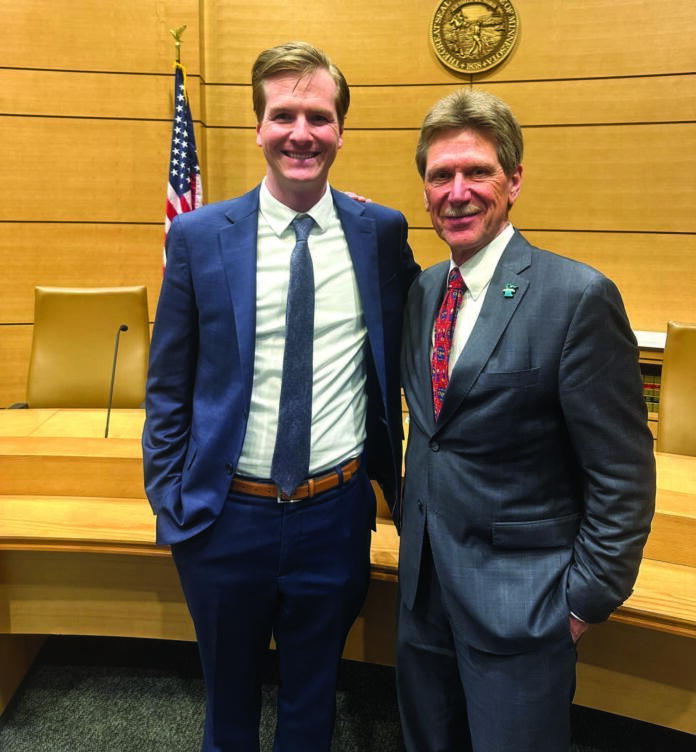Legislation follows discovery of major helium deposit discovered in Northern Minnesota
[SAINT PAUL, MN] — Following the recent discovery of a major helium deposit in Lake County, new legislation introduced by Senator Grant Hauschild (DFL-Hermantown) will establish the policy framework necessary for helium exploration in Minnesota immediately and set up an advisory council to create a long-term oversight framework for this new opportunity. Senator Hauschild’s legislation, S.F. 5048, received its first hearing Thursday, April 4th in the Senate Environment, Climate, and Legacy Committee.
“The discovery of this deposit is an exciting opportunity for Northern Minnesota to once again become a domestic source for a critical mineral, and this legislation makes sure the state is ready to capitalize,” said Senator Hauschild. “Now it is up to us as policymakers to move with urgency, get this legislation passed, and prepare for the future work we need to do to make Minnesota a global leader in helium extraction.”
Minnesota is one of just a handful of locations globally where helium is known to exist without hydrocarbons. As liquid helium is used as a coolant in nuclear reactors, rockets, superconductors, and medical diagnostic equipment, but many sectors face shortages due to its limited supply. However, Minnesota lacks frameworks around extraction of resources like helium, which means without this legislation, local communities and the state will not receive the benefits of the expected extraction.
“While this is an exciting opportunity, without a framework our local communities, our schools and our residents will not see the benefits,” added Senator Hauschild. “It’s important to get this right and ensure that our communities in Northern Minnesota receive the net benefits of this newly discovered deposit.”
Senator Hauschild’s bill sets up a temporary regulatory framework that takes effect immediately following enactment, while requiring the Department of Natural Resources (DNR) and other relevant agencies undergo rulemaking to further develop regulatory expectations within 24 months. It also establishes a Gas Production Technical Advisory Committee tasked with making recommendations for the creation of a temporary regulatory framework that will be in place until the rulemaking process is completed. The DNR must also prepare a report with policy recommendations and draft language on geologic carbon sequestration for the Legislature by January 15, 2025.
Following Thursday’s hearing, the bill was moved to the State and Local Government and Veterans Committee.




